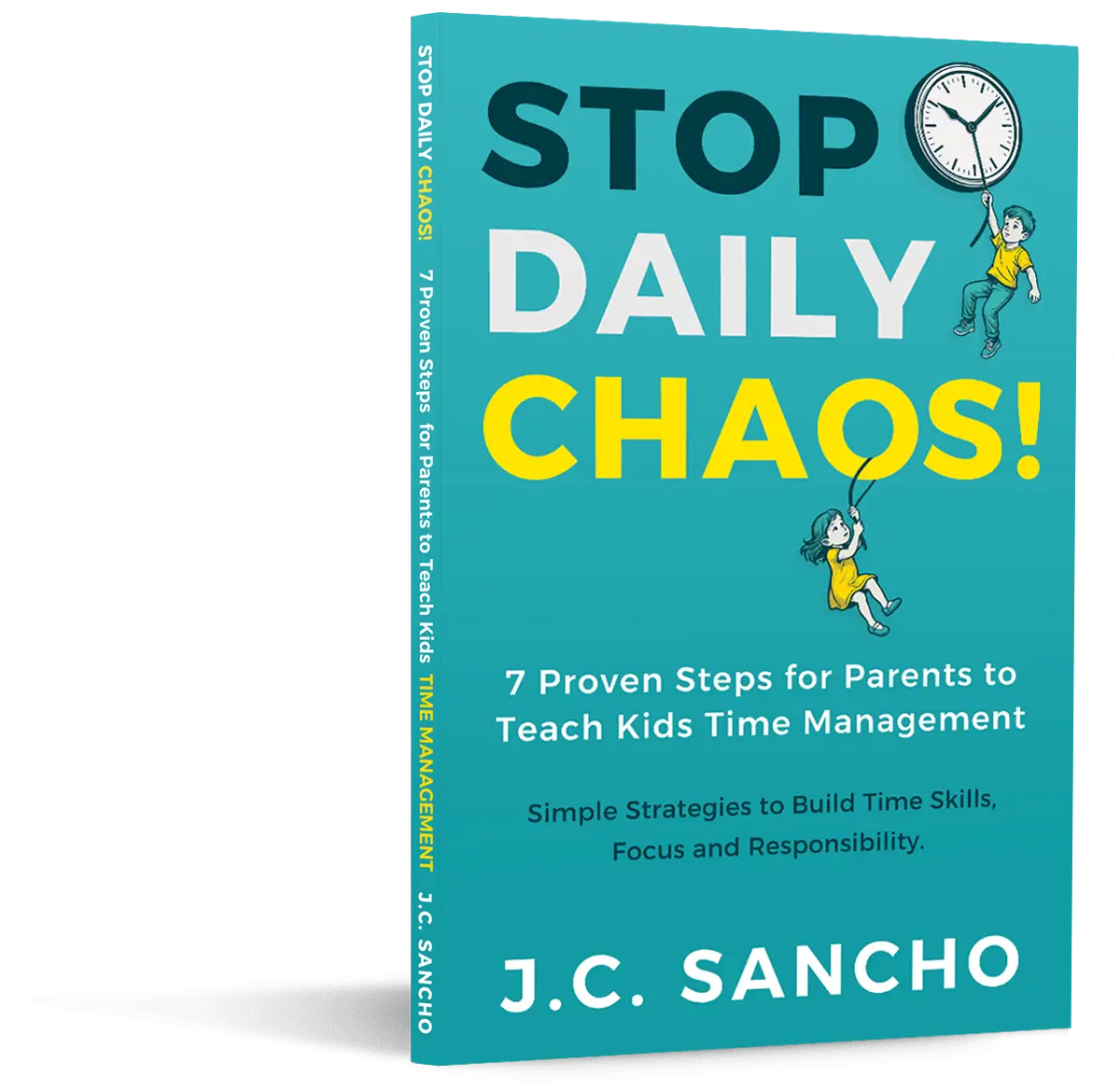Parenting is as much about nurturing a child’s heart and mind as it is about guiding their behavior. Respectful parenting — sometimes referred to as authoritative parenting — blends warmth with boundaries. It offers children the structure they need to feel secure while respecting their autonomy and individuality.
This article explores how to set firm, healthy boundaries while building a relationship rooted in trust. We’ll look at why this approach matters, how to communicate effectively, and what strategies work in different developmental stages. You’ll find tips for addressing challenges like power struggles and screen time, as well as ideas for cultivating empathy, self‑discipline, and resilience. Throughout, the focus is on raising confident, considerate children and maintaining a loving connection that can withstand growing pains.
The Foundations of Respectful Parenting
Respectful parenting is grounded in two core concepts: responsive care and clear expectations. Responsive care means tuning into a child’s emotions and needs, validating their feelings, and adapting your approach as they grow. Clear expectations mean setting age‑appropriate boundaries and following through consistently.
This philosophy recognizes that children learn best when they feel seen and heard. When parents acknowledge their children’s emotions and experiences, kids feel safe expressing themselves. This safety fosters trust, which is the bedrock of a healthy parent‑child relationship. In turn, clear expectations provide children with a sense of predictability. They know what behaviors are acceptable and what is off‑limits, which reduces anxiety and teaches responsibility.
Importantly, respectful parenting views misbehavior as an opportunity for teaching rather than punishment. Instead of labeling a child as “bad,” parents can help them understand what went wrong and how to do better next time. This approach cultivates self‑discipline and empathy.
Why Boundaries Are Essential
Some parents worry that setting boundaries might diminish their child’s independence or harm their bond. In reality, boundaries give children a framework to explore within safe limits. Much like fences around a playground, healthy rules allow kids to test their abilities without straying too far into danger.
Well‑defined boundaries:
- Provide safety by preventing behavior that could harm the child or others.
- Teach responsibility, as children learn there are consequences to their choices.
- Promote respect by showing that everyone’s needs matter, including the parent’s.
- Reduce conflict, since children know what to expect and what is expected of them.
When boundaries are communicated respectfully — without yelling, shaming, or unpredictable consequences — kids are more likely to cooperate. They also learn to respect others’ boundaries, an important life skill.
Communicating With Clarity and Compassion
Effective communication is at the heart of respectful parenting. It involves both listening and speaking in ways that encourage cooperation.
Be specific and direct: Vague instructions like “be good” leave room for interpretation. Instead, say what you expect — for example, “Please put your shoes in the closet when we come inside.”
Explain the why: Children are more likely to follow rules when they understand the reasons behind them. Briefly explain how a rule keeps them safe or supports family harmony.
Use positive phrasing: Telling a child what they can do (“Walk next to me while we’re in the store”) is more effective than constantly saying “no” or “don’t.”
Listen actively: When your child speaks, give them your full attention. Reflect back what you’ve heard to show you understand (“It sounds like you’re upset because your toy broke”). Validating feelings does not mean you condone misbehavior; it simply acknowledges their experience.
Stay calm: Kids pick up on emotional cues. If a parent remains calm when enforcing a boundary, the child is more likely to stay regulated and receptive.
Strategies for Different Ages
Respectful parenting looks different at each developmental stage. Here are strategies tailored to various ages:
Infants and Toddlers
With very young children, respect means responding quickly to their needs and establishing routines. At this stage, boundaries revolve around safety. For example, parents might gently redirect a toddler from touching an electrical outlet and offer an alternative, like a toy.
Language matters even before a child can speak. Narrate what you’re doing (“I’m changing your diaper to keep you clean”) and label feelings (“You’re crying because you’re hungry”). This fosters early communication skills and trust.
Preschoolers
At this age, children crave autonomy but still need plenty of guidance. Offer choices within boundaries (“Would you like to wear your red shirt or blue shirt?”). Choices empower kids while giving them a sense of control over small decisions.
Preschoolers benefit from simple rules stated positively. Instead of saying “Don’t run in the street,” say “Hold my hand when we cross the street.” Use natural consequences when possible (“If you throw your toy, I will put it away because it could break”).
School‑Aged Children
School‑age children are developing more complex reasoning skills. Involve them in creating household rules (“What should our bedtime routine look like so everyone is well‑rested?”). When kids contribute to rules, they feel invested in following them.
Encourage problem‑solving. If your child forgets their homework, ask what they can do differently next time instead of scolding. This fosters accountability and critical thinking.
Preteens and Teens
Adolescence is a time of emerging independence, identity exploration, and peer pressure. Respectful parenting during this stage involves allowing more autonomy while keeping lines of communication open.
Discuss big decisions together, such as curfews or screen time limits. Explain your concerns and listen to their perspective. Negotiate rules when appropriate, showing that you respect their growing maturity. However, certain boundaries — such as safety rules — remain non‑negotiable.
Model self‑respect by maintaining your own boundaries. If a teen speaks disrespectfully, calmly state that you’ll discuss the issue when they can speak respectfully. This shows them how to handle conflict while standing up for yourself.
Addressing Common Challenges
Even with the best intentions, challenges will arise. Here’s how to handle some of the most common ones:
Power Struggles
Power struggles occur when a child resists a parent’s directive to assert their independence. To defuse them:
- Offer limited choices to give your child a sense of control.
- Pick your battles. Not every issue is worth an argument.
- Use humor or playfulness to lighten the mood.
- Stay firm on non‑negotiable rules, but be flexible on minor issues.
Tantrums and Emotional Outbursts
Emotional outbursts are natural for young children who lack mature coping skills. In these moments, prioritize connection over discipline. Stay close, speak softly, and wait until your child is calm before discussing what happened. Offer comfort and help them name their emotions. Once they’re regulated, talk about better ways to express feelings in the future.
Screen Time
Technology is a part of modern life, but too much screen time can interfere with sleep, physical activity, and social skills. Establish clear guidelines that balance screens with other activities. For example:
- Set daily or weekly screen limits appropriate to your child’s age.
- Create “screen‑free” zones (such as dinner table and bedrooms).
- Offer alternative activities like board games, outdoor play, or crafts.
- Model healthy screen habits yourself.
Siblings and Fairness
Sibling rivalry can cause tension in the household. Avoid comparisons and treat each child as an individual. Encourage cooperation by praising teamwork and modeling fair conflict resolution. When disputes arise, listen to each perspective before guiding them toward a solution.
Building Trust Through Everyday Routines
Trust doesn’t develop overnight; it grows from countless small interactions. Here are ways to build trust daily:
- Consistency: Follow through on promises and consequences. Children need to know they can rely on you.
- Transparency: Share age‑appropriate information about decisions that affect them. For example, explain why you’re choosing a certain bedtime.
- Participation: Involve kids in chores and family responsibilities. This teaches teamwork and shows that their contributions are valued.
- Presence: Spend one‑on‑one time with each child. This can be as simple as reading together or taking a short walk.
- Honesty: Admit when you’ve made a mistake and apologize. Modeling accountability teaches integrity.
Encouraging Empathy and Compassion
Empathy — the ability to understand and share someone else’s feelings — is a cornerstone of respectful relationships. You can nurture empathy in your child by:
Modeling empathetic behavior: Let your children see you being kind and considerate to others, whether it’s helping a friend or showing patience with a waiter.
Discussing emotions: Use everyday situations to talk about how others might feel. Ask questions like, “How do you think your friend felt when you shared your toy?”
Encouraging perspective‑taking: When conflicts arise, ask your child to imagine the other person’s point of view. This practice helps them see beyond their own experiences.
By fostering empathy, you raise children who are not only respectful at home but also compassionate citizens in their communities.
Nurturing Self‑Discipline and Responsibility
One of the goals of respectful parenting is teaching kids to regulate their own behavior rather than relying on external control. You can support self‑discipline by:
- Establishing routines that provide structure and predictability.
- Using logical consequences that relate directly to the behavior (e.g., if a child leaves their bike in the rain, they help dry it and put it away properly).
- Encouraging problem‑solving by asking guiding questions instead of giving orders.
- Allowing children to experience manageable frustration, which builds resilience.
Responsibility grows when children feel trusted. Offer them age‑appropriate duties, such as feeding a pet, setting the table, or packing their school bag. Praise effort and progress rather than perfection.
Frequently Asked Questions
What if my child ignores the rules?
If your child consistently ignores a boundary, examine whether the rule is reasonable and whether you’ve communicated it clearly. Reinforce the boundary by reminding your child of the rule and its purpose. Follow through with appropriate consequences calmly. Consider involving your child in problem‑solving so they feel a sense of ownership over the solution.
How do I handle disagreements with co‑parents or caregivers?
Consistency is key to effective boundaries. Have a respectful conversation with your co‑parent or caregiver about your parenting goals. Focus on shared values and compromise where possible. Present a united front to your child to avoid confusion and mixed messages.
Can respectful parenting work in every culture?
While specific practices vary across cultures, the underlying principles of mutual respect, clear expectations, and empathy are universal. Parents can adapt these principles to align with their cultural values and traditions.
Is it too late to start respectful parenting with older children?
It’s never too late to build respect and trust. Older children and teens might resist changes initially, but with patience and consistency, they can adjust. Communicate openly about why you’re adopting new approaches, and invite their feedback. Demonstrating respect for their perspective can encourage them to meet you halfway.



